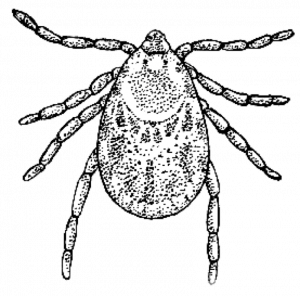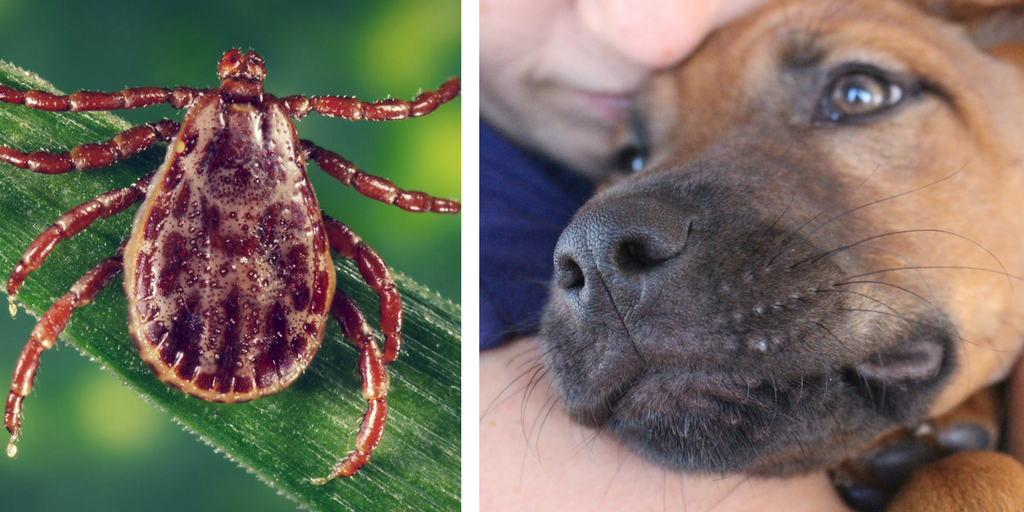Our pets are not the only ones that can potentially get bitten by ticks. That’s why we asked Dr. Filomena Reys, MD some advice on a very common type of tick-borne disease: Mediterranean Spotted Fever (MSF). We learned about its effects on humans – how to avoid it and what to do if you find a tick on yourself or your kids.
MSF or Boutonneuse Fever is a zoonosis (disease that affects both humans and animals), endemic in countries from the Mediterranean and South of Europe. It is an infectious disease caused by an obligate intracellular bacteria – Rickettsia conorii. This disease, included in the human rickettsiosis group, causes generalized inflammation in the blood vessels called vasculitis – that can lead to many problems throughout your body.
MSF appears mainly during the Spring and Summer times, with hot weather, with the occurrence of ticks.
It’s a disease that affect humans through the bite of an infected tick (Rhipicephalus sanguineus). The transmission of the disease takes between 6 to 20 hours of parasitization (actual time that the tick is attached to the skin).
The main symptoms include the triad: high fever, eschar (local mark of the tick bite) and maculopapular exanthema (widespread rash).
Moderate or high fever, muscular pain, headaches, nausea, vomits and loss of appetite might be associated with the beginning of the disease. After the first symptoms, some exanthems (red spots on the skin) might spread all over the body including hand and feet soles. Often, a small skin lesion called an eschar can appear in the place where the bite occurred. The disease usually lasts 5 to 7 days but you will need specific antibiotic prescribed by a doctor.
If you know you are going to a rural area, you can take some preventive measures:
- Avoid areas where there might be ticks
- Wear light colored clothes, covering your arms and legs
- Stuff your trousers inside boots or socks
- Inspect your body and clothes carefully and if you spot any ticks try to remove them carefully without crushing them.
- If you have kids, pay special attention to their heads and necks.
If you have a tick bite you should:
- If you find any ticks stuck to your skin, protect your hands with some plastic gloves or with a paper (so that you don’t have direct contact with it) and use tweezers to remove it.
- Grab the tick with the tweezers carefully and as close to the skin as you can.
- Pull it slowly to make sure you remove the whole tick (pay attention to the head as it usually buried in the skin)

Rhipicephalus sanguineus, the tick responsible for transmitting Rickettsia conorii
- Do not twist the tick whilst using the tweezers, as this may cause some part of the tick to break off and stay in the wound
- Wash your hands with soap and water
- Clean the bite area with an antiseptic liquid or with soap and water
Pay special attention: If you have fever, muscular pain, headaches, nausea, vomits or loss of appetite 2 to 14 days after the bite, you should go to the doctor immediately and remember to mention the tick!
Author: Filomena Reys, MD



Thank you for your information to protect us from them. But if my dog has been bitten by a Tick, what should I do? Is it important to consult with my veterinarian to prevent future infestation?
Hi Anna. Thanks for reaching out. If your dog is bitten by a tick, you should try to remove it as soon as possible and stay alert for any signs that may follow in your pup (fever, lethargy, joint pain, looking too tired all the time…).
In the mean time, check if your flea/tick prevention is up-to-date and if you figure out you missed your last preventive treatment, then talk to your vet to see which product /spot-on /collar or other you should use to prevent further pests on your doggo. And make sure to download the free Petable App and upload all the treatment info, so you never forget them again. #bePetable ^⨀ᴥ⨀^